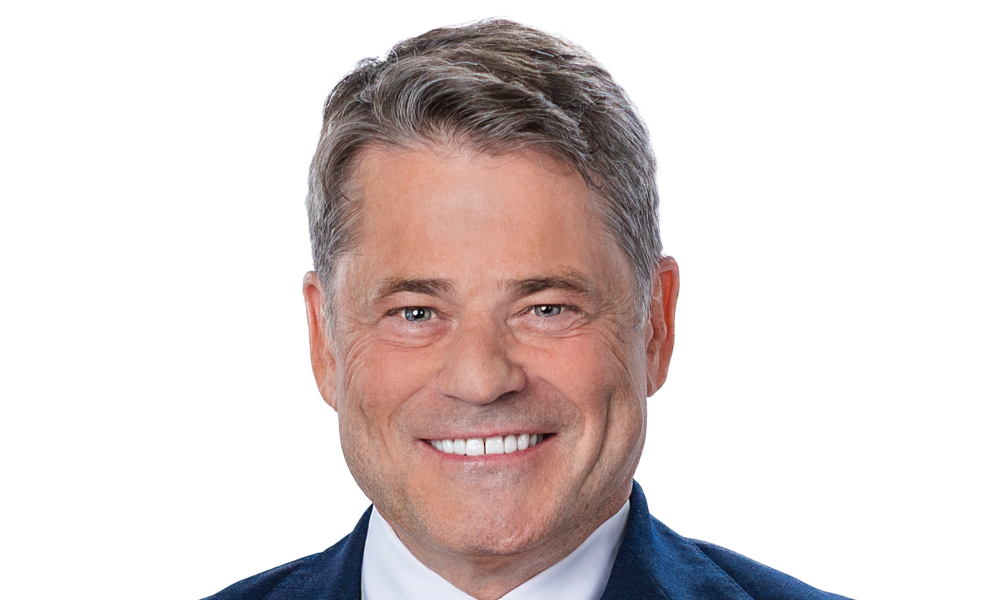Stuart Raftus explains why comprehensive financial planning can help advisors navigate the future

Growing industries generate competition. That’s true of technology, healthcare, and wealth management. The trouble for advisors is that competition in wealth management hasn’t just come from other advisory firms and practices. Other alternative channels have emerged in recent years, supposedly posing a threat to advisors' market share. Stuart Raftus, however, isn’t worried.
Raftus isn’t worried because he believes in comprehensive financial planning. Raftus is the CEO of Canaccord Genuity Corp., one of Canada’s largest and fastest-growing independent advisory firms. He argues that by embracing comprehensive financial planning, advisors can differentiate themselves in a crowded market. He explains that the growing need for financial planning expertise is prompting CG to equip its advisors with advanced tools and support, enabling them to become what Raftus refers to as the "essential advisor," delivering a level of service beyond most industry peers.
“It’s all about the financial plan,” Raftus says. “The breadth and depth of that financial plan, the legitimacy of the plan, the complexity of it, it opens up all the pathways to everyone within a client’s family. It allows advisors to build relationships with families and become a critical part of the family. Back in the day, family doctors were considered part of the family, and that’s a model for the kind of relationship advisors need to build, based on a high level of trust.”
Raftus has been driving his firm to lead the evolution of financial planning, committing significant investments in both technology and talent. He highlights their introduction of best-in-class financial planning software, giving CG advisors the ability to create highly personalized plans. These plans are built on clients’ unique goals and preferences and informed by some AI-powered recommendations. He also highlighted CG’s investments in their wealth and estate planning group, employing an experienced team of planning professionals to support CG’s advisors.
Canaccord Genuity is making these investments, in part due to the changing circumstances advisors and clients face now. The ongoing intergenerational wealth transfer could see families move away from advisors who have not built that comprehensive plan or achieved that level of trust. Ensuring an advisor retains clients and trust hinges on the sophistication of their service offerings, according to Raftus. That includes investment advice and portfolio management, but it also involves estate and tax planning, it could involve cross-border services, and it almost certainly involves building plans for the next generation.
Raftus acknowledges that some advisors question the value of financial planning or find it challenging to introduce the concept to long-term clients. He urges advisors to overcome this challenge, emphasizing that financial plans will become indispensable to their client relationships.
“The financial plan provides greater insight into a client’s investing objectives, allowing the advisor to offer more targeted and appropriate advice,” says Raftus. “We know that wealthy Canadians are shifting from having multiple financial advisors to just one. As the planning-based relationship evolves, clients become more focused on their objectives and less on market activity, making them more likely to choose you as their sole advisor.”
Capturing market share and maintaining relationships with the next generation of wealthy Canadians can be achieved through the same means: technology. Raftus highlights that independent firms like his own have the capacity to invest meaningfully in their technology and retain a cutting edge approach. Where larger organizations layer in bureaucracy and tie up technological progress, firms in that mid-sized bracket can stay nimble while leveraging the resources necessary to keep up with the times.
Advisory teams are key to the modern value add, as well. Raftus notes that as client needs and plans become more complex, advisors should be partnering together into larger full-service teams. Advisors with complementary skills and experiences can work in tandem to cover one family’s estate planning, investment management, and cross-border needs. It’s on advisory firms, however, to facilitate the formation of successful teams.
As advisors look for successful models and means of ensuring long-lasting client relationships, Stuart Raftus says that their work needs to begin with the comprehensive financial plan. Whatever a client’s goals, dreams, age, needs, or considerations, a plan can form the foundation of a long-lasting relationship and a long-lasting practice.
"Regardless of how and why your client is investing, you should have a financial plan or blueprint," says Raftus. "People invest for different reasons and different outcomes. The plan guides you to those outcomes. The more serious you are about developing the details of this plan, which represents a shared understanding, the more successful your client will be in their investment endeavours."



